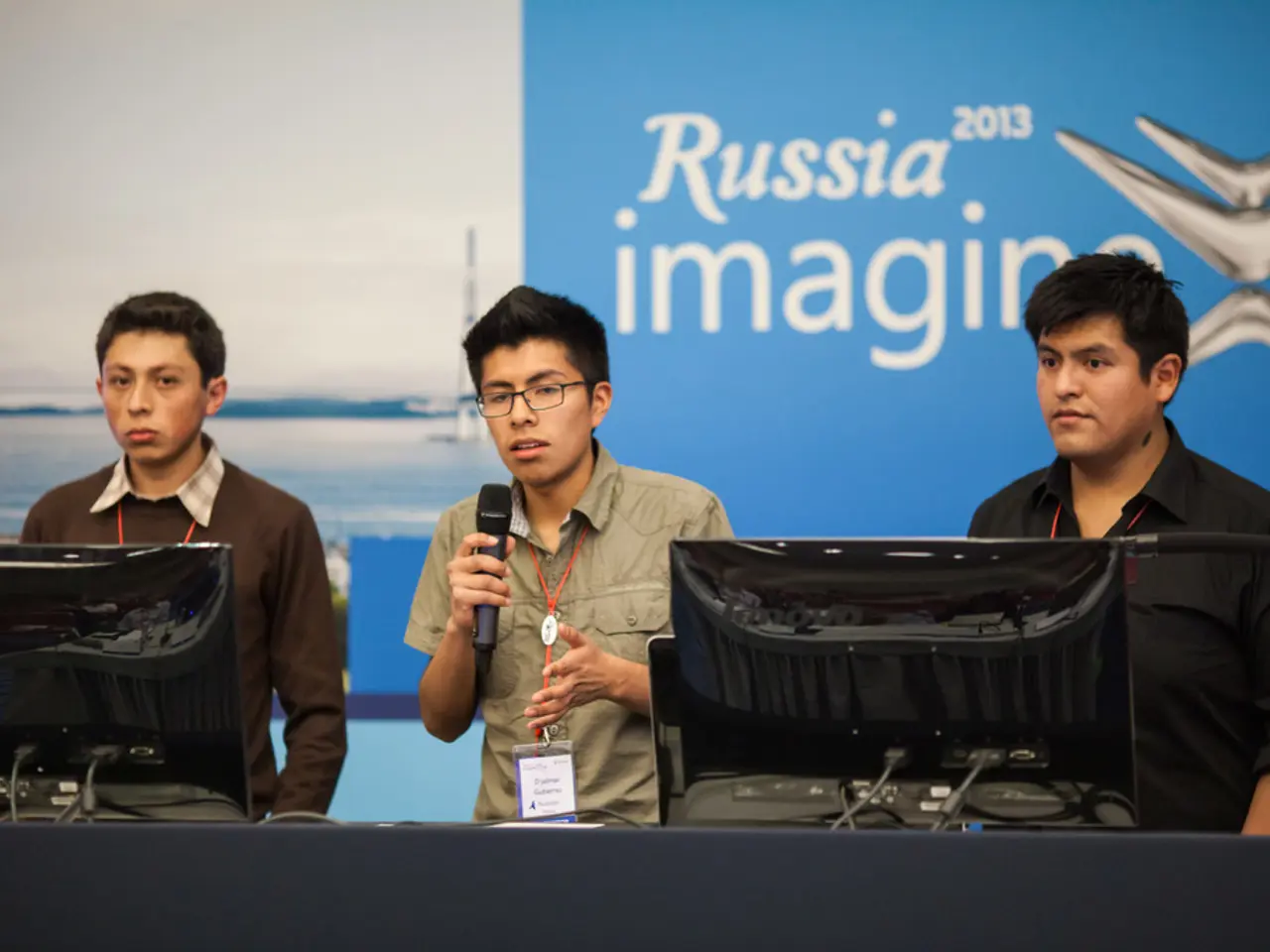International anxiety arises as Ukraine is sidelined during the Trump-Putin meeting, potentially impacting crucial peace negotiations.
In the upcoming meeting between US President Donald Trump and Russian President Vladimir Putin, the fate of Ukraine's territorial integrity and its aspirations for NATO membership are at the forefront.
According to Russia's deputy foreign minister, Alexander Grushko, Moscow seeks Ukraine's neutral status and the refusal of NATO countries to accept it into the alliance. Putin's key demands reportedly include the prohibition of NATO membership for Ukraine, the prevention of Western troop deployment on Ukrainian soil, control or surrender of the Donbas region, and a possible freeze of front lines in Kharkiv and Zaporizhzhia.
However, Ukraine's perspective and demands are starkly different. Ukrainian President Volodymyr Zelenskyy has stated that Ukraine will not give up any of its land, and any decisions on territorial concessions must be made by Ukraine, with binding security guarantees that include the US. Zelenskyy has also expressed concern that any reductions to Ukraine's military could allow Russia to secure more Ukrainian land, even with Western support.
Ukraine's absence from direct negotiations between Trump and Putin raises concerns about the legitimacy and fairness of any outcomes affecting Ukraine. Western capitals, including the EU, are urging the US to maintain a united front and consider Ukraine's concerns to avoid legitimizing Russian territorial claims.
The ongoing conflict between Russia and Ukraine remains existential for both nations, with deep mutual distrust and no guarantee that Putin will even meet Zelenskyy as Trump proposes. The Kremlin's goals remain the "elimination of Ukraine as a state and as a culture, elimination of NATO, and undermining of the US global positions," according to Pavel Luzin, a Russian political analyst.
Despite these challenges, Zelenskyy and his counterparts have found consensus on key Ukrainian demands during talks with European leaders and Trump. They agree that Kyiv will decide on any territorial concessions and that no such concessions can occur without binding security guarantees.
Zelenskyy has compared the Alaska summit to the 1938 Munich Agreement, suggesting that Putin may seek to influence US policy and push for abandonment of Ukraine and European allies. Zelenskyy's expectations for the summit are low, fearing that the American and Russian leaders will dictate Ukraine's future without its participation.
NATO nations, while backing Ukraine in its defensive war, have refused to allow Kyiv's accession to the alliance, with the leaders of key allied nations stating that Kyiv cannot accede while it is at war. Trump has threatened "severe consequences" against Russia if Putin does not agree to stop his war on Ukraine.
Territory has been a main source of conflict between the two countries since Russia's annexation of Crimea and fomentation of separatist revolt in eastern Ukraine in 2014. Putin has demanded "international legal recognition" of his 2014 annexation of Crimea and four regions he has occupied to varying degrees since launching his full-scale invasion in 2022, and wants Ukrainian troops to withdraw entirely from the Donetsk, Luhansk, Zaporizhzhia and Kherson regions.
Russian officials are also looking for their own "security guarantees" regarding NATO, by which Ukraine would be permanently excluded from the alliance. This signals a strategic shift from Putin’s earlier, more expansive demands in 2024 when Moscow insisted Ukraine relinquish four regions—including Donetsk, Luhansk (both in Donbas), Kharkiv, and Zaporizhzhia—which Moscow annexed illegally.
The meeting between Trump and Putin is set to take place in Alaska, and its outcome could have significant implications for Ukraine's future and its relationship with the West.
Read also:
- Weekly happenings in the German Federal Parliament (Bundestag)
- Southwest region's most popular posts, accompanied by an inquiry:
- Discussion between Putin and Trump in Alaska could potentially overshadow Ukraine's concerns
- Massive 8.8 earthquake hits off the coast of Russia's Kamchatka Peninsula, prompting Japan to issue a tsunami alert.







